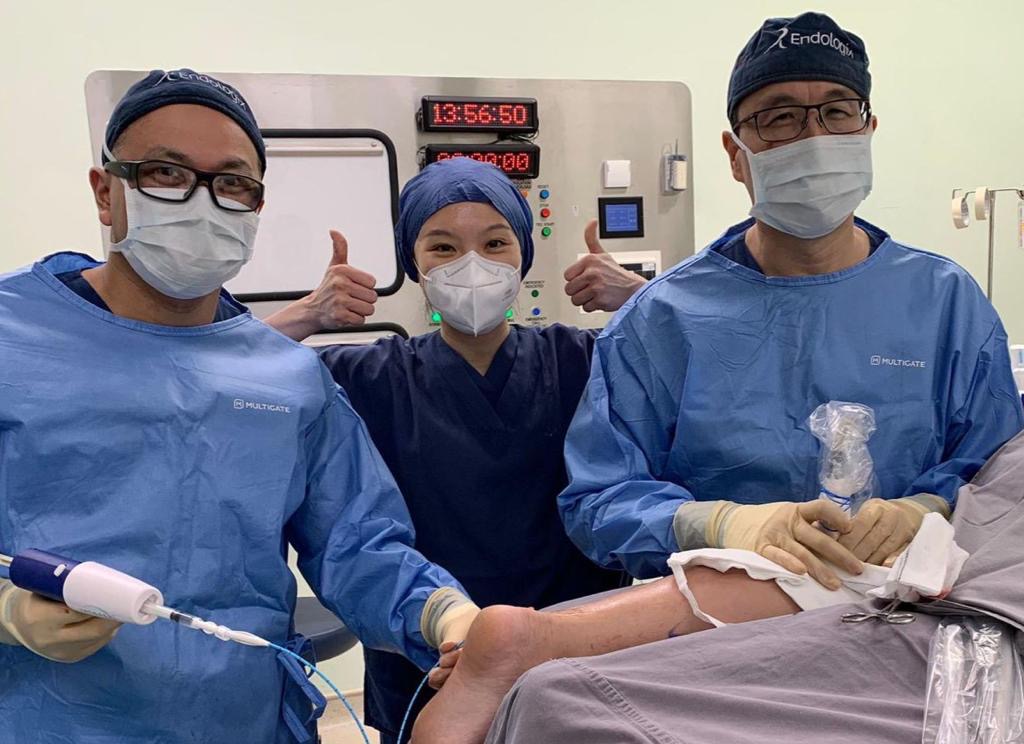Vascular anaesthetists play a crucial role in the care and management of patients undergoing vascular surgery. Their main responsibilities include:
- Preoperative assessment: Vascular anaesthetists evaluate patients before surgery, assessing their medical history, conducting physical examinations, and ordering relevant tests to ensure safe anaesthesia administration.
- Anesthesia administration: They administer anaesthesia to patients during surgery, ensuring their comfort, pain management, and safety throughout the procedure. Vascular surgeries often involve complex procedures and may require specific techniques to monitor and control blood flow.
- Hemodynamic monitoring: Vascular anaesthetists closely monitor the patient’s vital signs, including blood pressure, heart rate, and oxygen levels. They ensure optimal hemodynamic stability during the surgery, as vascular procedures often involve significant changes in blood flow.
- Fluid and blood management: Vascular surgeries may require careful fluid and blood product administration to maintain adequate circulating volume and optimize tissue perfusion. Vascular anaesthetists are responsible for managing these aspects during the procedure.
- Postoperative care: After surgery, vascular anaesthetists continue to monitor patients in the recovery period, ensuring their pain relief, stability, and appropriate management of any complications that may arise.
- Collaborative approach: Vascular anaesthetists work closely with the surgical team, including surgeons, nurses, and other healthcare professionals, to provide comprehensive care to the patient. They contribute their expertise to ensure a smooth and successful surgical outcome.
Yes, using a vascular anaesthetist can have a positive impact on outcomes in vascular surgery. Here are a few ways in which their involvement can contribute to better outcomes:
- Expertise in vascular physiology: Vascular anaesthetists have specialized knowledge and training in the unique physiological aspects of vascular surgery. They understand the hemodynamic changes that occur during these procedures and can effectively manage blood pressure, fluid balance, and tissue perfusion. Their expertise can help minimize the risk of complications and optimize patient outcomes.
- Individualized anaesthesia management: Vascular surgeries often involve complex procedures and patients with multiple comorbidities. Vascular anaesthetists are skilled in tailoring anaesthesia management to the specific needs of each patient. They consider factors such as the patient’s underlying vascular disease, cardiac function, and coagulation status to develop an individualized anaesthesia plan. This personalized approach can reduce the risk of perioperative complications and improve surgical outcomes.
- Collaboration with the surgical team: Vascular anaesthetists work closely with the surgical team, fostering a collaborative approach to patient care. By actively communicating and coordinating with the surgeons, nurses, and other healthcare professionals involved in the surgery, they contribute to a well-coordinated and efficient surgical process. This interdisciplinary collaboration can lead to improved outcomes by ensuring smooth perioperative management, early recognition of complications, and prompt intervention when needed.
- Optimization of patient condition: Vascular anaesthetists play a crucial role in optimizing the patient’s condition before, during, and after surgery. They assess the patient’s overall health, manage preexisting medical conditions, and ensure appropriate pain control. By addressing these factors, they help minimize the potential for perioperative complications and facilitate a smoother recovery.
- Enhanced postoperative care: Following vascular surgery, vascular anaesthetists are involved in the postoperative care of patients. They guide pain management, fluid balance, and early recognition of complications. By closely monitoring the patient’s condition and collaborating with the postoperative care team, they can contribute to a faster and smoother recovery, reducing the risk of postoperative complications.
While the involvement of a vascular anaesthetist does not guarantee perfect outcomes, their specialized knowledge, skill set, and collaborative approach can positively impact patient outcomes by optimizing perioperative management and addressing the specific challenges associated with vascular surgery.
Overall, vascular anaesthetists play a vital role in optimizing patient care and safety during vascular surgery, ensuring a successful procedure and optimal postoperative recovery.
At the Vascular and Endovascular Clinic, our vascular specialists collaborate closely with senior anaesthetists with interest and experience in vascular anaesthesia to give our patients optimal postoperative outcomes.









